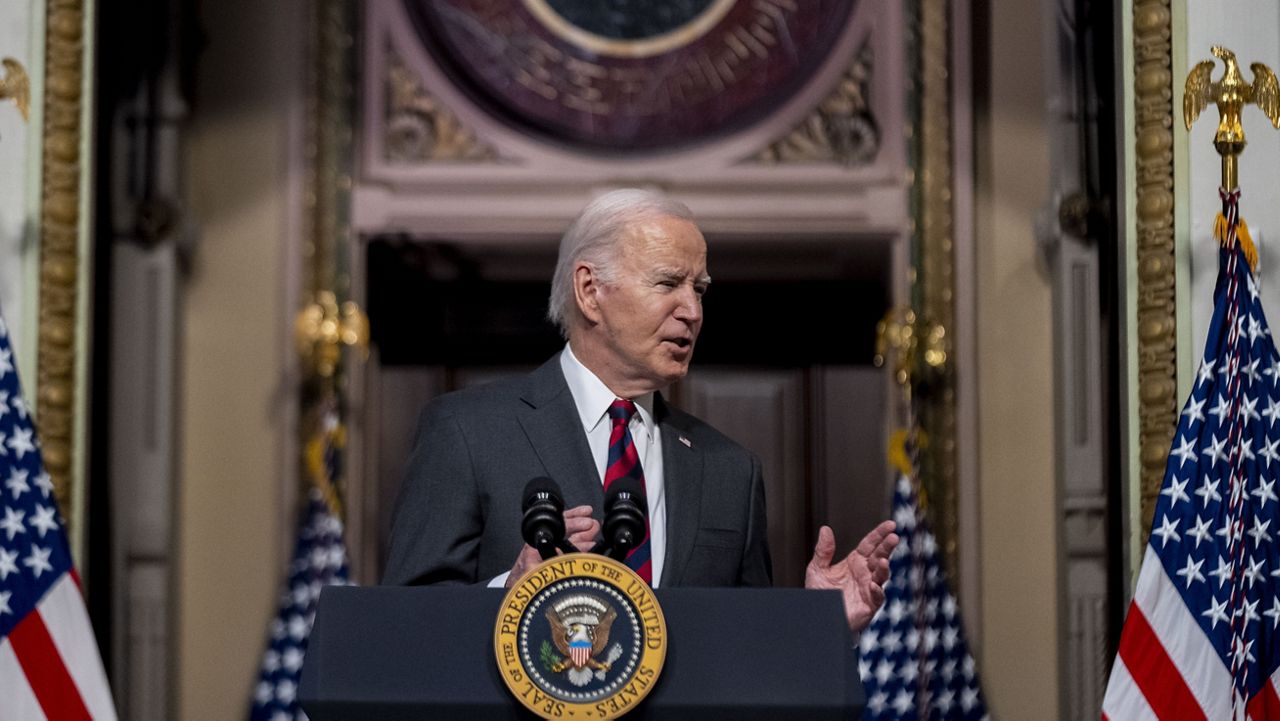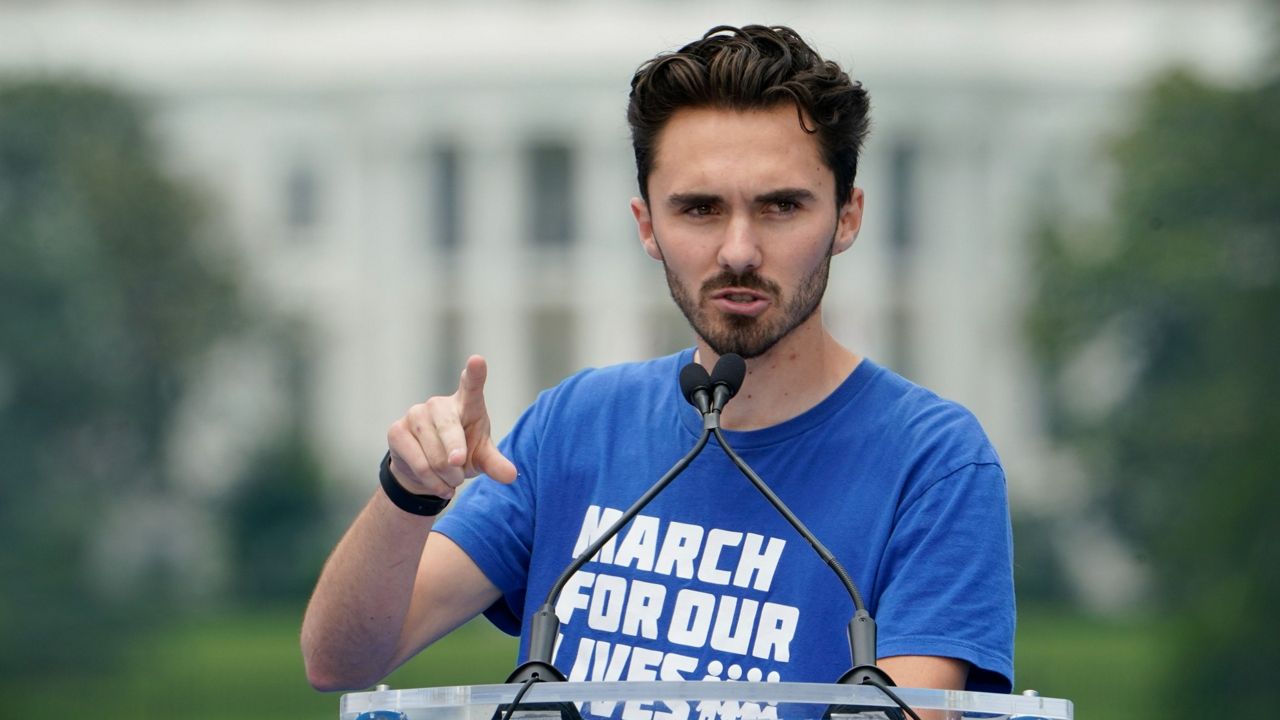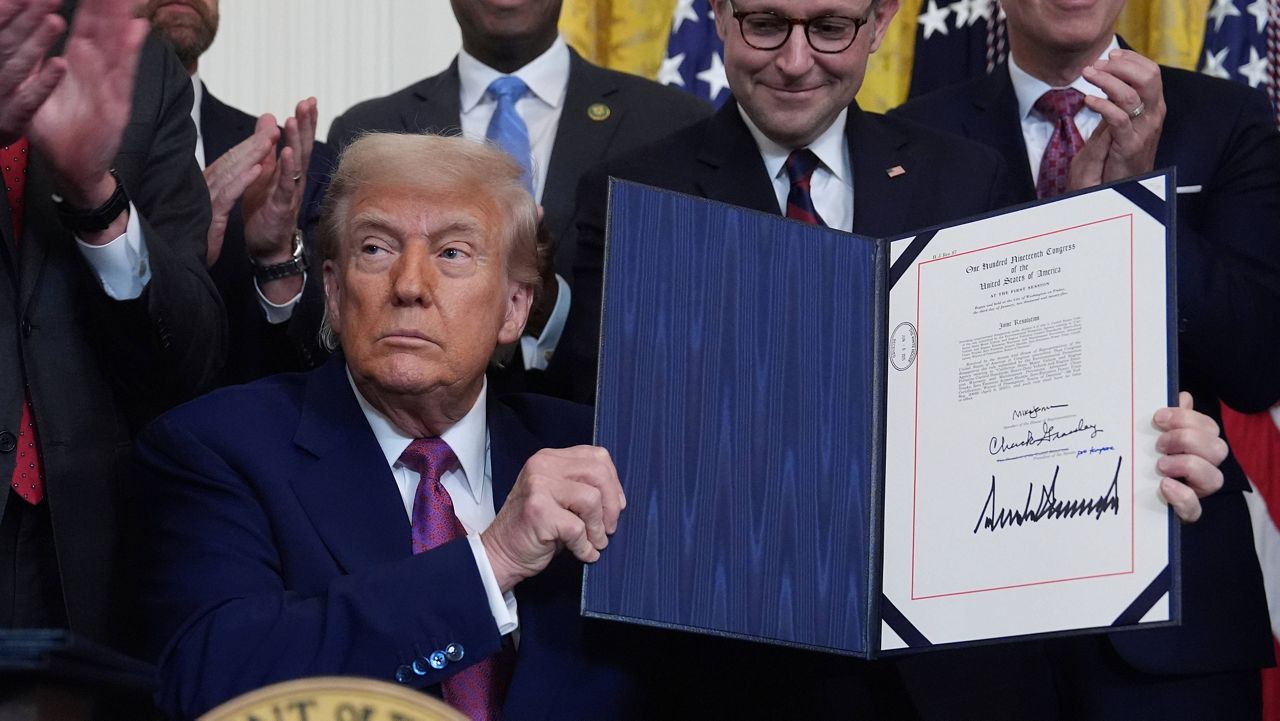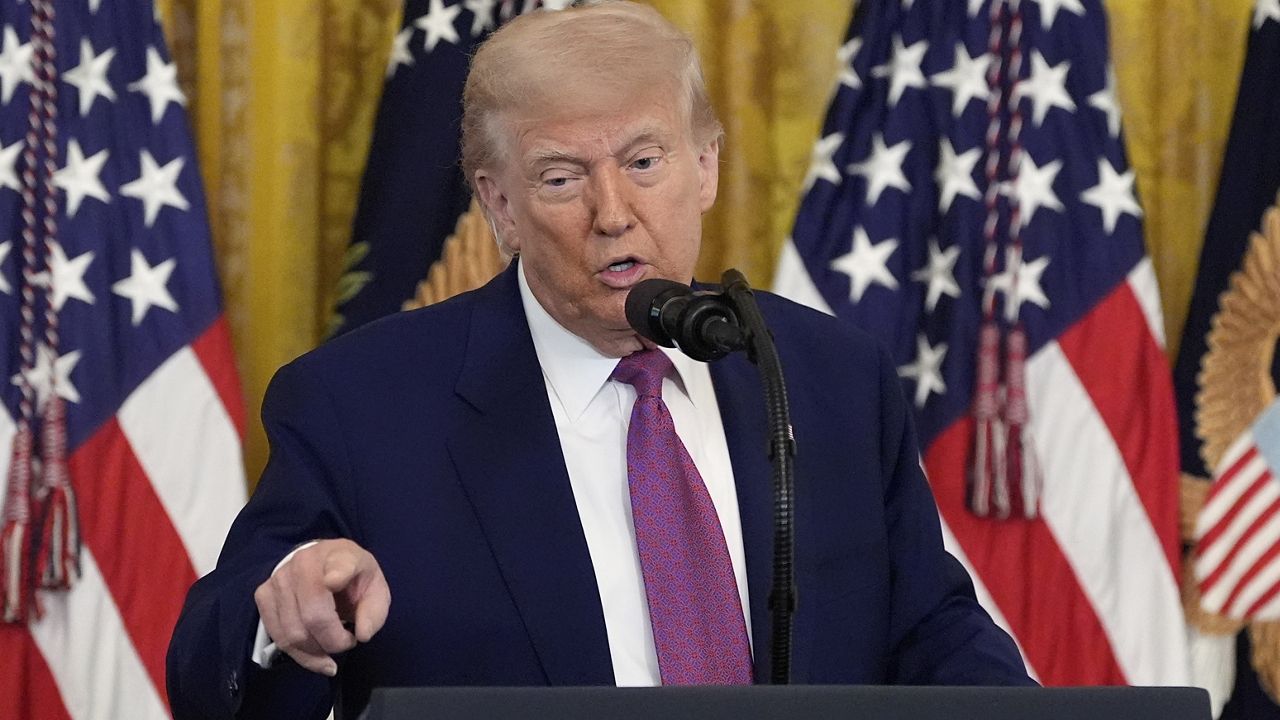Fresh off the Thanksgiving holiday, President Joe Biden kicked off the first meeting of his new supply chain resilience council, taking a victory lap on lower prices at last week’s dinner table and arguing Monday’s announcements will help drive down costs for Americans.
“This past week, as Americans gathered around their own kitchen tables for Thanksgiving dinner, that was our goal: to give them a little more breathing room and together we made progress,” Biden declared, referring to data, such as that from the American Farm Bureau Federation showing the average cost to feed 10 people a turkey dinner decreased 4.5% from last year.
The president went on to emphasize a well-oiled supply chain is “critical” for such efforts, pointing out that at this time two years ago, 100 container ships were “lined up” waiting “to dock on the ports.”
“This year, there were less than 10,” he said to the newly-formed council in the Indian Treaty Room at the White House on Monday.
“Meaning that if major appliances, like a stove or a fridge, broke down over Thanksgiving, you can replace it faster and 9% cheaper than you did two years ago,” Biden added. “These savings matter to so many families, especially at this time of the year.”
With that sentiment in mind, Biden used Monday’s inaugural meeting of his supply chain resilience council – which will be chaired by National Security Advisor Jake Sullivan and National Economic Advisor Lael Brainard – to announce 30 actions seeking to strengthen the production and shipment of goods, including domestic manufacturing of essential medicine.
The new efforts include boosting data-sharing between government departments to better track and monitor supply chains. The Department of Commerce, for instance, is developing risk assessment tools and collaborating with the Department of Health and Human Services on critical drugs and the Department of Energy on clean energy supply.
“We need to be less reliant on volatile energy prices, particularly when most of the energy supply as it is, doesn’t come from the United States, but comes from around the world,” said Daniel Hornung, deputy director of the National Economic Council said in an interview with Spectrum News.
Biden also announced on Monday he is broadening the authority of the Department of Health and Human Services to boost investment in domestic manufacturing of medicines deemed “essential to the national defense” under the Defense Production Act. As part of the move, the department has identified $35 million for investments for injectable medicines.
The other actions include new investments from other agencies as well as new reports, strategies and plans focused on supply chains.
“Over the last three years, all the leaders around this table -- these two tables on my right and left -- have also worked to lower costs for American families,” Biden said to members of the council, which includes Cabinet secretaries, the Office of Management and Budget, and the Office of Science and Technology Policy, the U.S. Trade Representative and other senior officials.
Although inflation has eased – the annualized increase in the consumer price index fell to 3.2% last month from a peak of 9.1% in June of last year – the issue has been a thorn in Biden’s side as polls continue to show unfavorable ratings from the American public when it comes to his economic job performance.
“We know the prices are still too high for too many things, that times are still too tough for too many families,” Biden said on Monday. “But we've made progress, but we have more work to do.”
The president also used Monday’s meeting to tout his work to crack down on what he calls “junk fees” – hidden or unexpected costs that show up at the end of purchases on things like concert tickets, car rentals or hotel rooms – and offer a warning to businesses.
“Let me be clear,” Biden said,“to any corporation that has not brought their prices back down -- even as inflation has come down, even supply chains have been rebuilt -- it's time to stop the price gouging -- giving the American consumer a break.”
Spectrum News’ Harri Leigh contributed to this report








